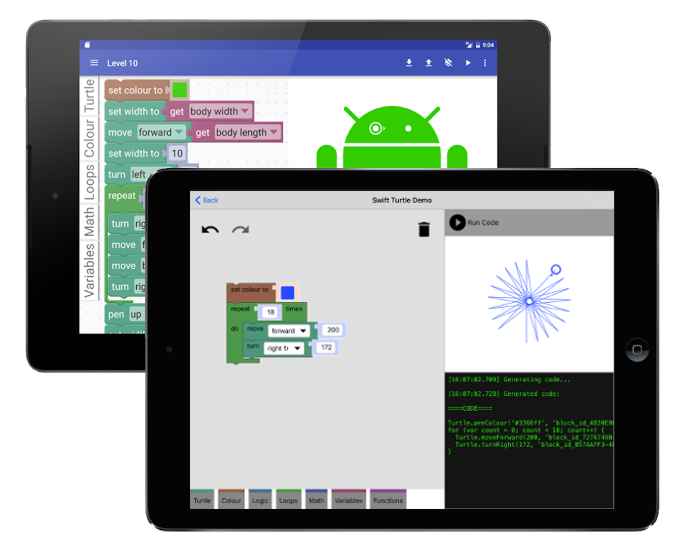| Blockly 1.0 on Android and iOS |
| Written by Lucy Black | |||
| Tuesday, 13 June 2017 | |||
|
Google has released Version 1.0 of Blockly on Android and iOS, which will allow developers to use Blockly natively in mobile apps. Google Blockly was introduced in 2012 and is open source under the Apache 2.0 License. It looks and feels like a version of Scratch in that users program by dragging and dropping code blocks onto a design surface, that is then compiled to JavaScript. It is also written in JavaScript and as such is designed to run in a web page. A native Android version of Blockly made its first appearance at Google I/O 2016 and the iOS version, which is also open source, was made available in developer preview in November 2016. Now both these versions have reached Version 1.0 with everything needed to use Blockly natively in a mobile app, including:
The post on the Google Developers blog from Erik Pasternak also announces several updates to the web project over the past six months, including major improvements to performance and testing, more structured APIs, improved touch support for the mobile web and improved Internet Explorer and Edge support with Blockly fully supported on IE10+. The team has also taken steps to ease cross platform development. All blocks can now be defined by JSON, allowing a single set of block definitions to be used for web, iOS, and Android. Although Blockly started out to be used to introduce coding to kids, and has been extensively used in the Hour of Code, there is no reason for restricting it to this role, as this video from Cory Diers introducing Blockly to app developers shows:
More InformationIntroducing Blockly 1.0 for Android and iOS Related ArticlesGoogle Languages Update - Blockly Block Based Languages Are Best Minecraft Code Builder In Beta Stanford CS Moves To JavaScript Choosing The Best Beginner's Programming Language Getting started with MIT App Inventor 2 A Programmer's Guide to Scratch 2 Blockly Games Introduce Kids To Code The Working Programmer's Guide To Language Paradigms To be informed about new articles on I Programmer, sign up for our weekly newsletter, subscribe to the RSS feed and follow us on Twitter, Facebook or Linkedin.
Comments
or email your comment to: comments@i-programmer.info
|
|||
| Last Updated ( Tuesday, 13 June 2017 ) |


